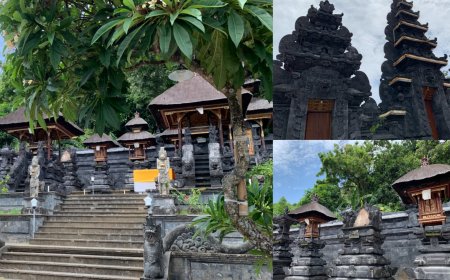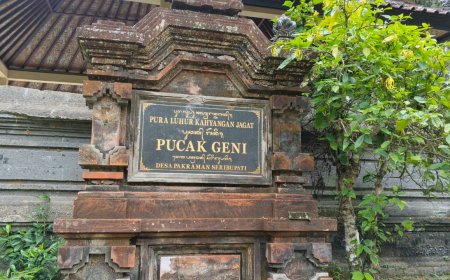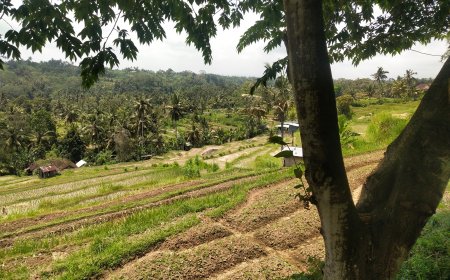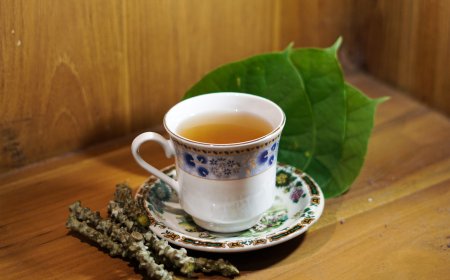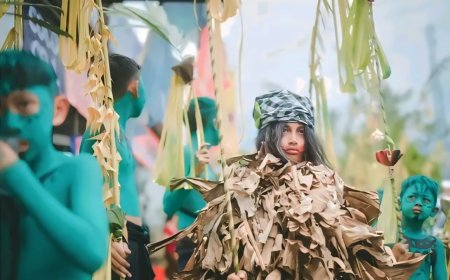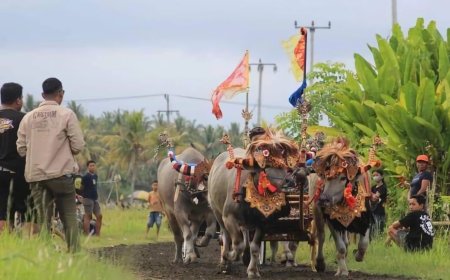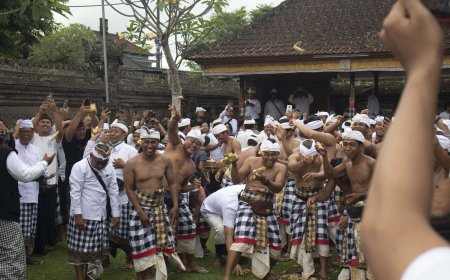Mekare-kare, A Unique Tradition of Screw Pine Leaves Battles
There are many unique customs and traditions in Indonesia. In Bali, there is one iconic tradition that is always preserved by the local community and eagerly anticipated by domestic and international tourists. This tradition involves a battle using screwpineleaves and shields made of woven rattan. This tradition is known as Mekare-kare or can also be referred to as the Screw Pine Leaves Fighting Tradition of Tenganan Village, Bali.
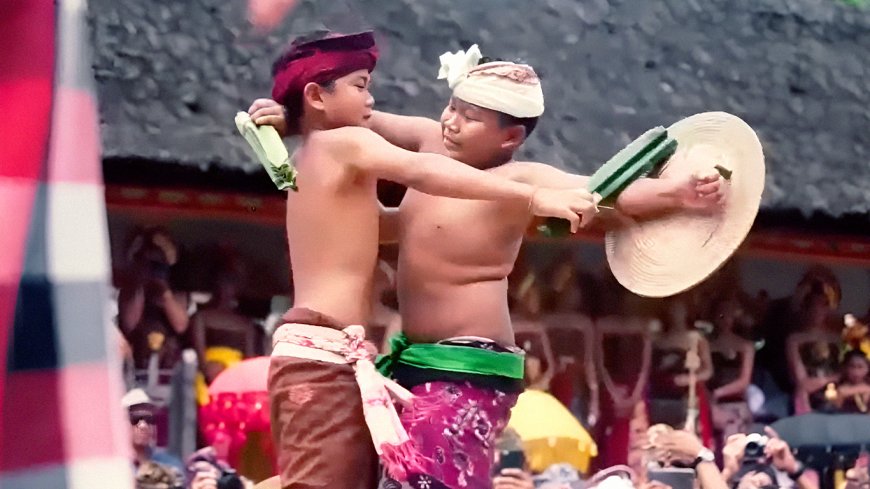
The Mekare-kare or Screw Pine Leaves Fighting Tradition is a ritual battle using screw pine leaves that serves as an offering to honor Dewa Indra, the God of War, and the ancestors. Dewa Indra is said to have fought against a king of giant descent named Maya Denawa, who forbade his people from believing in and worshiping God. Due to the unpleasant treatment by this king, the people pleaded with Dewa Indra to free them from Maya Denawa's rule. Therefore, to honor Dewa Indra, the Mekare-kare tradition is performed. Additionally, this tradition is also part of the Sasih Sembah ceremony, which is the largest religious ceremony in Tenganan Village.
This tradition takes place every year in June and is held in Tenganan Village, Manggis District, Karangasem Regency, Bali. The tradition lasts for two days and is held in front of the village meeting hall. Typically, it takes place at around 2 in the afternoon.
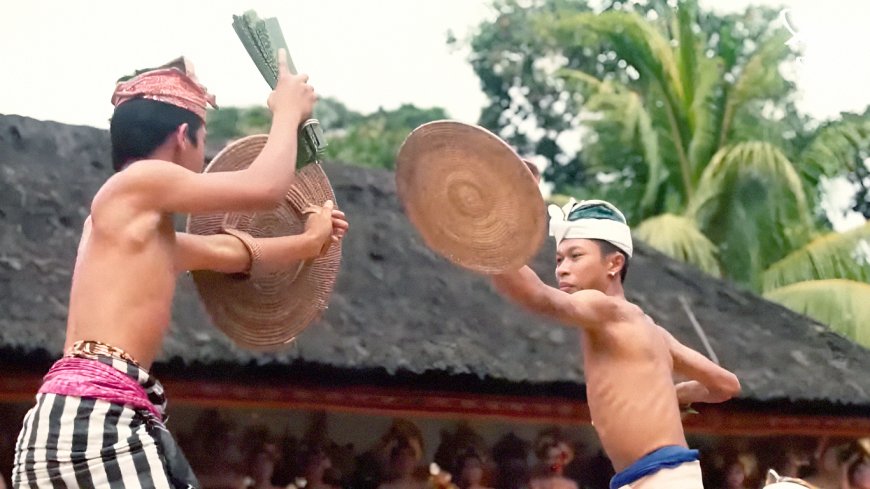
Screw pine leaves battle (Source: Author's Collection)
Mekare-kare or Screw Pine Leaves Fighting involves weapons made of screw pine leaves that are bound together to resemble a mace. The shields used are made of woven rattan. This tradition is obligatory for boys transitioning into adolescence until they become adults. Participants and spectators wear the traditional attire of Tenganan Village, known as "kain tenun Pegringsingan." Men usually wear "saput" or a shawl, "kamen," and a headband called "udeng" without wearing a top or shirt.
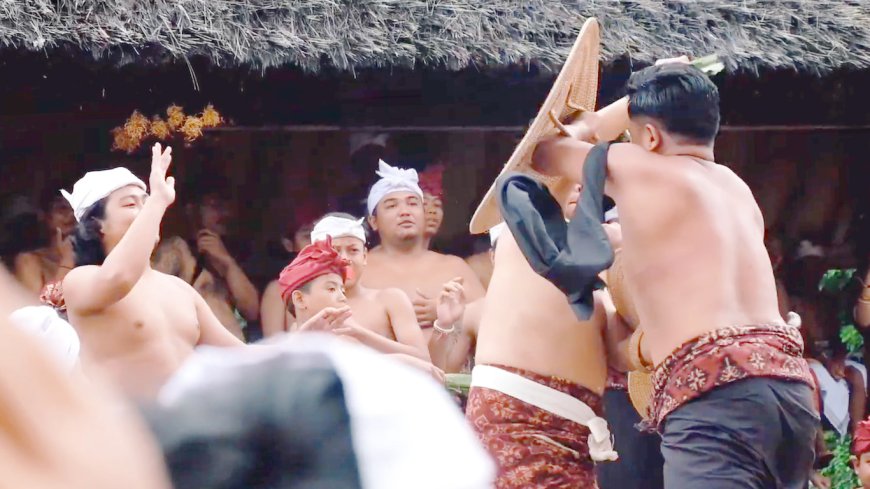
Village circling ceremony (Source: Author's Collection)
Before the Mekare-kare tradition begins, it starts with a ceremony where the village is circled to pray for safety and smooth proceedings. Then, participants partake in a ritual of drinking "tuak," a traditional palm wine, which is poured onto banana leaves and then poured onto the banana leaves of other participants. This tuak is eventually collected and discarded on the side of the stage.

Screw pine leaves battle mediator (Source: Author's Collection)
When Mekare-kare is about to commence, there is someone who serves as a mediator for the battle, usually the village leader. As a mediator, they give instructions to the participants who are getting ready and act as a referee. When the mediator raises their hand, both participants can start attacking each other. Participants attempt to embrace and strike their opponent on the stage while dragging or scratching them with the screw pine leaves they use. Other participants cheer them on to the fast-paced rhythm of the gamelan music. When one of the participants falls, the mediator separates them, and the match is considered over. Each match lasts for approximately 1 minute and is done in turns, so the entire tradition takes about 3 hours.
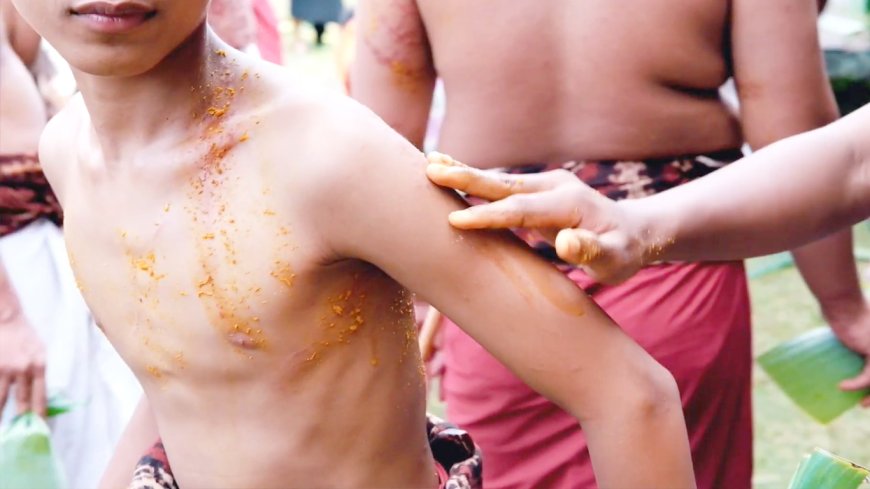
Turmeric concoction (Source: Author's Collection)
Afterward, participants who have minor scratches from the battle are given a turmeric concoction to heal their wounds. They also engage in a communal meal called "Megibung." Despite the physical combat, no one holds grudges or harbors anger, and everyone remains cheerful because of their sincere dedication to this tradition in honor of Dewa Indra.



